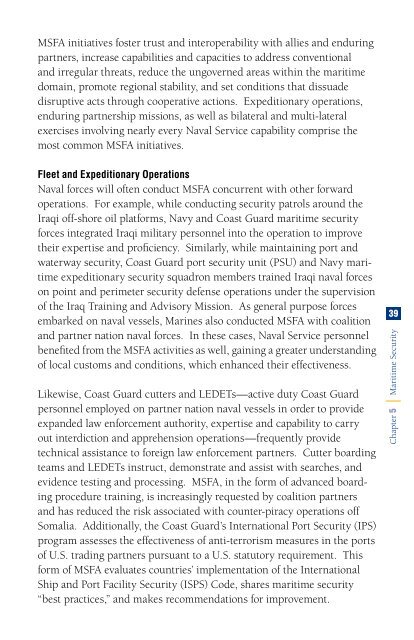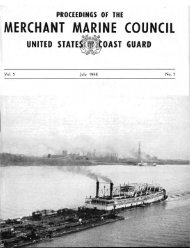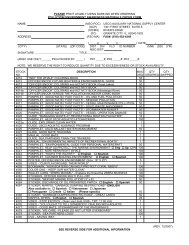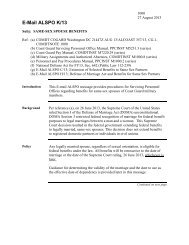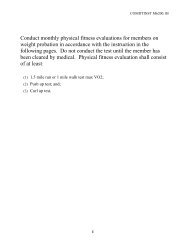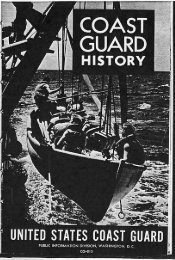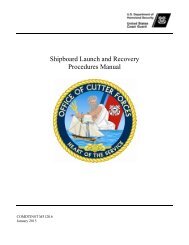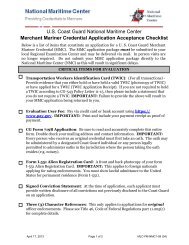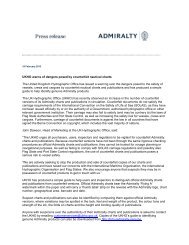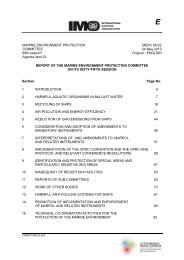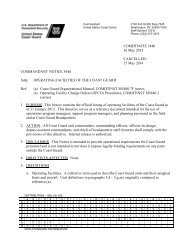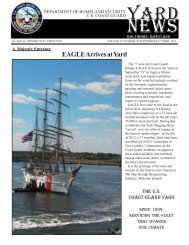Naval Operations Concept - Defense Technical Information Center
Naval Operations Concept - Defense Technical Information Center
Naval Operations Concept - Defense Technical Information Center
You also want an ePaper? Increase the reach of your titles
YUMPU automatically turns print PDFs into web optimized ePapers that Google loves.
MSFA initiatives foster trust and interoperability with allies and enduring<br />
partners, increase capabilities and capacities to address conventional<br />
and irregular threats, reduce the ungoverned areas within the maritime<br />
domain, promote regional stability, and set conditions that dissuade<br />
disruptive acts through cooperative actions. Expeditionary operations,<br />
enduring partnership missions, as well as bilateral and multi-lateral<br />
exercises involving nearly every <strong>Naval</strong> Service capability comprise the<br />
most common MSFA initiatives.<br />
Fleet and Expeditionary <strong>Operations</strong><br />
<strong>Naval</strong> forces will often conduct MSFA concurrent with other forward<br />
operations. For example, while conducting security patrols around the<br />
Iraqi off-shore oil platforms, Navy and Coast Guard maritime security<br />
forces integrated Iraqi military personnel into the operation to improve<br />
their expertise and proficiency. Similarly, while maintaining port and<br />
waterway security, Coast Guard port security unit (PSU) and Navy maritime<br />
expeditionary security squadron members trained Iraqi naval forces<br />
on point and perimeter security defense operations under the supervision<br />
of the Iraq Training and Advisory Mission. As general purpose forces<br />
embarked on naval vessels, Marines also conducted MSFA with coalition<br />
and partner nation naval forces. In these cases, <strong>Naval</strong> Service personnel<br />
benefited from the MSFA activities as well, gaining a greater understanding<br />
of local customs and conditions, which enhanced their effectiveness.<br />
Likewise, Coast Guard cutters and LEDETs—active duty Coast Guard<br />
personnel employed on partner nation naval vessels in order to provide<br />
expanded law enforcement authority, expertise and capability to carry<br />
out interdiction and apprehension operations—frequently provide<br />
technical assistance to foreign law enforcement partners. Cutter boarding<br />
teams and LEDETs instruct, demonstrate and assist with searches, and<br />
evidence testing and processing. MSFA, in the form of advanced boarding<br />
procedure training, is increasingly requested by coalition partners<br />
and has reduced the risk associated with counter-piracy operations off<br />
Somalia. Additionally, the Coast Guard’s International Port Security (IPS)<br />
program assesses the effectiveness of anti-terrorism measures in the ports<br />
of U.S. trading partners pursuant to a U.S. statutory requirement. This<br />
form of MSFA evaluates countries’ implementation of the International<br />
Ship and Port Facility Security (ISPS) Code, shares maritime security<br />
“best practices,” and makes recommendations for improvement.<br />
Chapter Maritime Security


